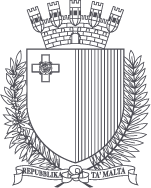Excellencies,
Good morning. I am delighted to address you for the first time as Minister for Foreign Affairs and Trade Promotion, and to join you for this very timely meeting. Apart from discussing our common vision and priorities, this is an ideal occasion to get to know each other better.
I already had the pleasure of meeting some of you during my previous role as Minister for Home Affairs and National Security. I now look forward to familiarising myself further with the work you carry out in your respective Missions and to discuss targets for the coming months.
This meeting coincides with the conclusion of the Maltese Presidency of the Council of the European Union, and I wish to begin by congratulating you and your staff for your contribution to the success of this momentous chapter in our country’s history.
I have gone through some rather impressive figures relating to events and initiatives undertaken by your Missions, ranging from presentations on the Maltese Presidency to national legislatures, Heads of Mission meetings, and cultural programmes exposing Malta’s finest talent – to mention but a few examples. I was very positively struck by what was achieved with, more often than not, the limited resources at your disposal. In this same spirit, I also thank the Ministry staff at Head Office, without whose coordination and careful planning the endeavours I have just mentioned would not have been possible.
Now that the term of the Presidency is over, we can look ahead and invest our energies and the experience gained over the past six months into other projects. Firstly, we need to build upon the successes of our Presidency and, secondly, we need to recalibrate our focus to reflect emerging realities.
As you all know, the Ministry now also covers the very dynamic area of Trade Promotion.
I am aware that most of you have already delivered results and immersed yourselves in trade promotion as a primary target within your respective missions.
We are certainly not short of attractive characteristics which you, our Ambassadors, can – and should – increasingly make known to your foreign interlocutors in your trade promotion efforts. Malta’s economy remains one of the fastest-growing in Europe. Over the past few years we have witnessed strong economic performance, robust job creation, low unemployment, and improved public finances. Our banking system remains well-capitalised and liquid, well above the levels seen in other European countries. The Central Bank of Malta has indicated that GDP growth is expected to increase by 4.6 per cent this year and by 4.4 per cent in 2018. Labour market conditions are forecast to remain favourable while private consumption is projected to continue growing strongly in the next 18 months.
Excellencies,
The Prime Minister’s decision to add Trade Promotion to the Foreign Affairs Ministry’s responsibilities and to highlight this change by amending the Ministry’s traditional name was certainly not one that was taken haphazardly. It mirrors the Government’s engagement to actively support Malta-based enterprises extend their operations into international markets, and to attract further foreign investment.
We are, therefore, determined to ensure that our resources are restructured and bolstered in a way that reflects the Government’s commitment in this field, and in a way that is conducive to even better results than those that have been obtained so far.
Through our international network of embassies and consulates, we shall continue striving to promote Malta as a destination for business, investment, tourism, education, medical services, and much more. Through the same network, we shall endeavour to find new ways of developing existing markets overseas, and to open up new ones, for Malta-based enterprises. In this task, you will find an excellent partner – amongst others – in Trade Malta, the public-private executive agency formed between the Government of Malta and the Chamber of Commerce, and which is dedicated to supporting Malta-based businesses to reach international markets with their products and services.
Since it began operating in 2015, TradeMalta has been tasked with marketing and coordinating both incoming and outgoing trade missions, promoting participation in international trade fairs, facilitating bilateral trade meetings, and researching new market opportunities. It also provides specialised training programs in international business development and marketing, while administering a number of incentives schemes and internationalisation programmes aimed at both novice and experienced exporters.
It also actively supports the promotion of franchising, joint-ventures, and other forms of international business opportunities between Malta-based businesses and foreign companies.
Allow me to commend the small but dynamic team behind Trade Malta, who – taking into consideration the relatively limited resources available to them – are doing an extremely good job. Through their networks, they are proving instrumental in tapping countries and regions even in parts of the globe where Malta lacks diplomatic representation. As was announced on Monday, for instance, in three week’s time our Ministry and Trade Malta will be in Ghana, leading an exploratory trade promotion mission of 23 Malta-based businesses that have shown interest in exploring trade opportunities in Western Africa.
Excellencies,
As a close observer of this Ministry’s work in my previous capacity, I could notice a shift from those regions or countries with which Malta was traditionally associated. We have successfully moved beyond the Mediterranean and our well-established, more traditional, partners and proceeded to strengthen contacts with the Western Balkans, Eastern Europe, the Gulf, Africa and, despite the distances and infrequent contacts, also with Latin America.
We should be particularly attentive to developments in the Western Balkans, a region with relatively newly-formed states, which apart from the political and latent ethnic challenges, still presents ample room for commercial exchanges. We have often been told by interlocutors in this region, that Malta is to them a model they would like to emulate.
This broadened network, in such a brief period of time, attests to the fact that size has a very marginal, if not negligible, impact on the respectability that countries garner on the international plane, when their approaches are serious and their agendas principle-driven.
The widening of our horizons does not however imply that we, in any way, overlooked the pressing issues impinging on our neighbourhood – the Mediterranean. Far from this, we have brought this region to the front and centre of our national policy formulation as well as that of the European Union and other institutions we are firmly committed to, such as the OSCE in Vienna.
Perhaps we have felt this positive impact at its strongest within EU circles. This is where, over the past six months, we saw an unprecedented intensification of contacts and exchanges with the other members but also with our partners to the South and East, mainly through the European Neighbourhood Policy.
We have also given our full support to other existing or evolving tools such as the Common Security and Defence Policy and the EU Global Strategy.
In respect to the Ministry’s engagement on global issues and multilateral affairs, outstanding results have been achieved. I will limit myself to listing only a few on this occasion, and I will focus on those where I feel you could take a principal role in sharing Malta’s priorities with capitals of residence.
Let me begin with the politically sensitive issue of migration. My appeal to you is, of course, to be familiar with our national positions and red lines but, above all, to remember that we are ultimately dealing not with statistics but with human lives. While on this subject, I would like to point out that we are following closely international media reports on migration that are mentioning Malta, including in relation to NGO activity in the Central Mediterranean.
In the meantime, we are determined to continue with our very close collaboration with Italy in this field: Malta uses practically all its Armed Forces resources to save migrants from the sea. Assets of the Armed Forces of Malta participating in Frontex’s Joint Operation Triton carry out their duties in line with the operational plan.
Excellencies,
At this present juncture, it is also vital for us to link regional priorities with pressing international challenges. We have struck this balance by tangibly addressing the issue of terrorism in one of Malta’s closest partners – Tunisia. During the Maltese Presidency of the EU, efforts within the Working Party on Counterterrorism – International Aspects specifically focused on the Middle East and North Africa region.
This region remains a concern in the fight against terrorism. Key challenges also present a threat to the EU’s internal security. This is exactly the kind of relevance that Malta continues to bring to the EU table.
It is also the same spirit which continues to guide our work within the United Nations. Malta is now ready to share its experience of institution building, peaceful transitions and the development of strong regional ties and, as an active UN Security Council member for the term 2023-2024, I firmly believe that Malta would similarly serve the global community well. With this in mind, Malta is seeking election to one of the Non-Permanent Seats to the Security Council during the 2022 election. This is a goal towards which you will all need to embark on extensive and well-researched outreach with your contacts in the coming months.
At the same time, we will continue to deliver results in the Commonwealth, and here I see a particular role that Malta can take up both as Chair-in-Office, and even on its own steam as a country, in addressing the Commonwealth’s future post-Brexit.
There is one other face to Malta’s active diplomacy with which I ask you to remain fully in tune, and this relates to Development. The main priority of our Presidency in the Development field was the New European Consensus on Development.
This Consensus outlines our shared values, goals, and priorities, and establishes a new common vision and framework of how the EU and the Member States will work together to assist partner countries in realising the Sustainable Development Goals.
The EU’s development cooperation priorities will not change and the fight against poverty will remain a priority with a view to leaving no one behind, but we need to make it fit-for-purpose and adapt it to a changing world, including new challenges as well as new opportunities.
The past year-and-a-half has seen the launch of the Sustainable Development Goals, which have already made a substantial impact in that direction, but we need to do more and better.
Malta will remain committed to the implementation of the Agenda 2030 and is in the process of developing an inter-ministerial structure, which maintains and reports this implementation.
Excellencies,
We have all been working very hard because of EU Presidency commitments. As we put the Presidency behind us, let us look at this phase as the opening of a new, exciting chapter. I urge you to keep up the good work and approach your duties with an innovative, proactive approach that recognises challenges but also envisions solutions. I promise to walk my talk; I will be leading you by example.
Let us take up the banner and make the best use possible of our diplomatic networks to continue building relationships, identifying trade opportunities, showcasing our economy and culture, and enhancing Malta’s reputation overseas. I am confident that your unwavering commitment will see this shared goal through.
Thank you.






